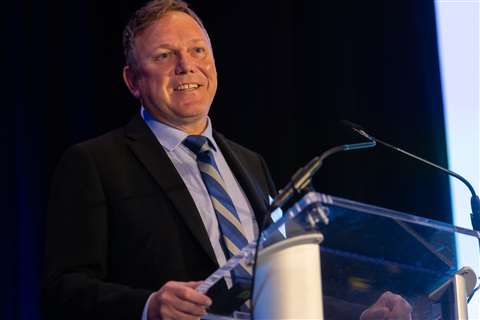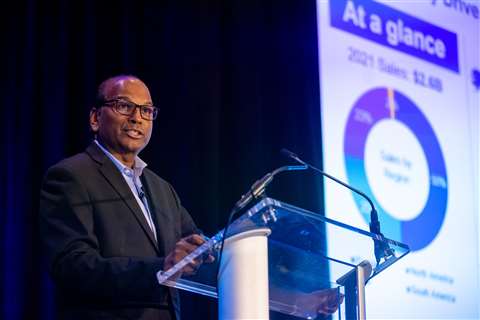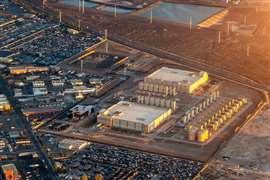Foreseeing a fuel-agnostic future for IC engines
05 October 2022
Cummins is on a challenging path to “Destination Zero,” with the goal of zero emissions for all of its power and energy solutions by 2050. The company has already been aggressively at work on development of new technology solutions to move it closer to that objective.
 Jonathon White, vice president of Engine Business Engineering, Cummins. (Photo: KHL/Joe Mather)
Jonathon White, vice president of Engine Business Engineering, Cummins. (Photo: KHL/Joe Mather)
“By 2030, we’re targeting 25% reduction in greenhouse gas of all of the newly sold products that we sell to our customers,” said Jonathon White, vice president of Engine Business Engineering, Cummins, in a presentation at the 2022 Diesel Progress Summit. “That equates to 55 million megatons of reduced greenhouse gas emissions from those units in the field by 2030.”
Cummins is taking a “fuel-agnostic” approach from the fuel and technology perspective. “Whether it’s diesel, natural gas, hydrogen, low-carbon fuels with a compression ignition engine – that’s the focus of our fuel-agnostic platform strategy for the engine business,” White stated.
The company has started with engine platforms 15 L and below, examining the existing base engine and identifying what has to change in order to make it capable of running on alternative fuels, while retaining as much commonality as possible with its diesel engine counterpart.
Using this approach, most of the changes will be above the cylinder head, primarily within the spark ignition and fuel systems to accommodate the different fuels. The lower half of the engine will remain largely the same – with the product architecture, engine footprint and service intervals designed around using the same parts and components where possible.
“From a conscious perspective, we see this as a great option for our environment now; it’s scalable within a decade easily,” White said. “The benefits to our end users are that it’s competitive in initial costs plus superior from a total cost of ownership perspective. And it’s almost a drop-in solution.”
Global benefit of fuel-agnostic approach
Allen Aradi, projects and technology development leader at oil company giant Shell, believes that fuel-agnostic solutions, including hybrids, spark ignition and compression ignition engines, will be essential to decarbonization of heavy-duty vehicles and equipment globally.
 Allen Aradi, projects and technology development leader, Shell. (Photo: KHL/Joe Mather)
Allen Aradi, projects and technology development leader, Shell. (Photo: KHL/Joe Mather)
In part of his Summit presentation, he noted that approaches to achieve net-zero by 2050 will require “a global lens because decarbonization is different in different regions of the world,” and dependent on the affordability and availability of different fuels. The infrastructure and investment to develop it must put be in place to serve the expanding needs and GDP of a growing global population.
The most practical near-term solutions will be low-carbon fuels. “As you approach 2050 and reality – the rubber meets the road – you will find that low carbon fuels are going to be pretty important,” said Aradi, “and the combustion systems to burn them will be very important.”
This will include solutions such as Cummins’ fuel-agnostic compression ignition engine platform. “The driver mainly right now is the diversity of low carbon fuels and volume constraints, which are forcing engine hardware to become fuel agnostic,” said Aradi. Optimization of hybrids, spark ignition and compression ignition as well as dual-fuel solutions to utilize these fuels will be essential. “OEMs are going to be really working in order to [achieve those] optimizations.”





